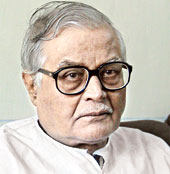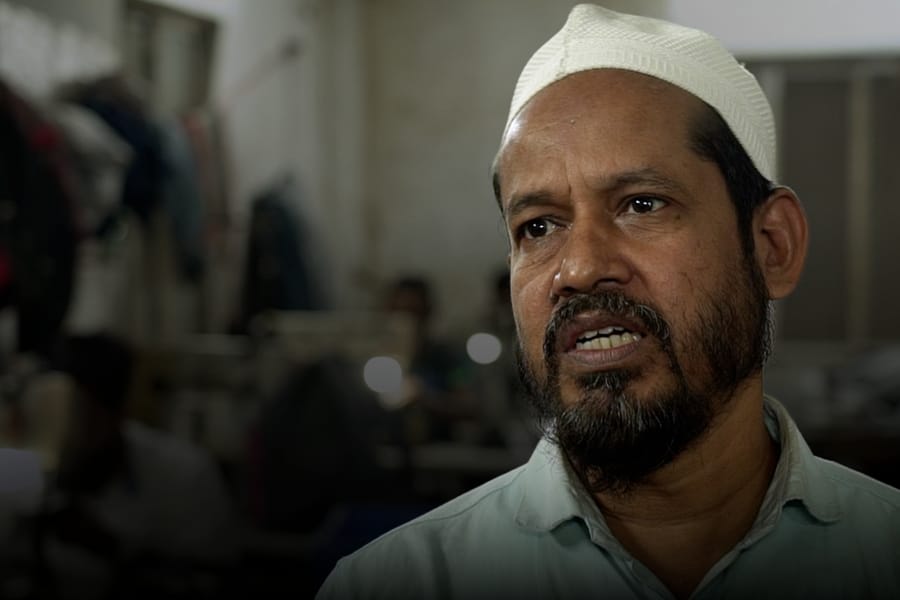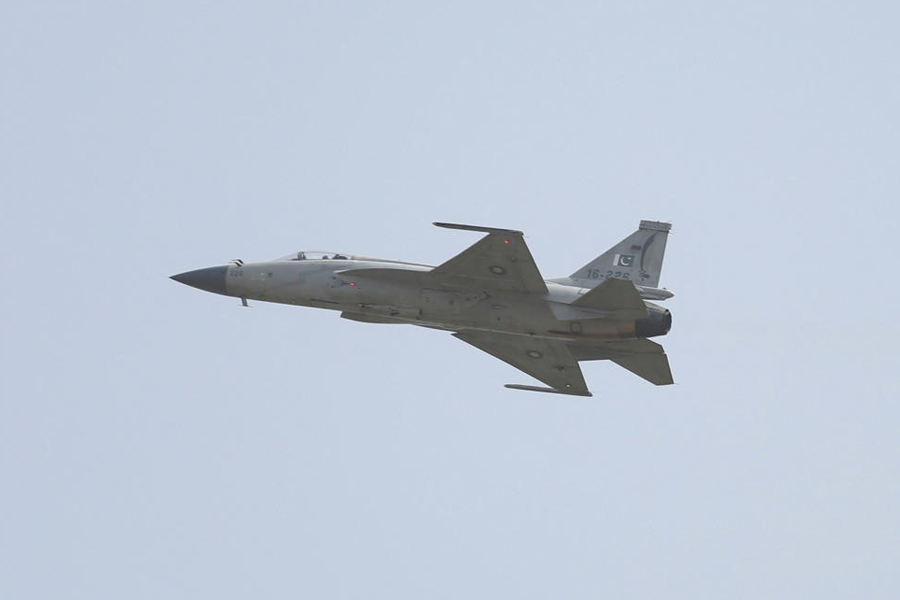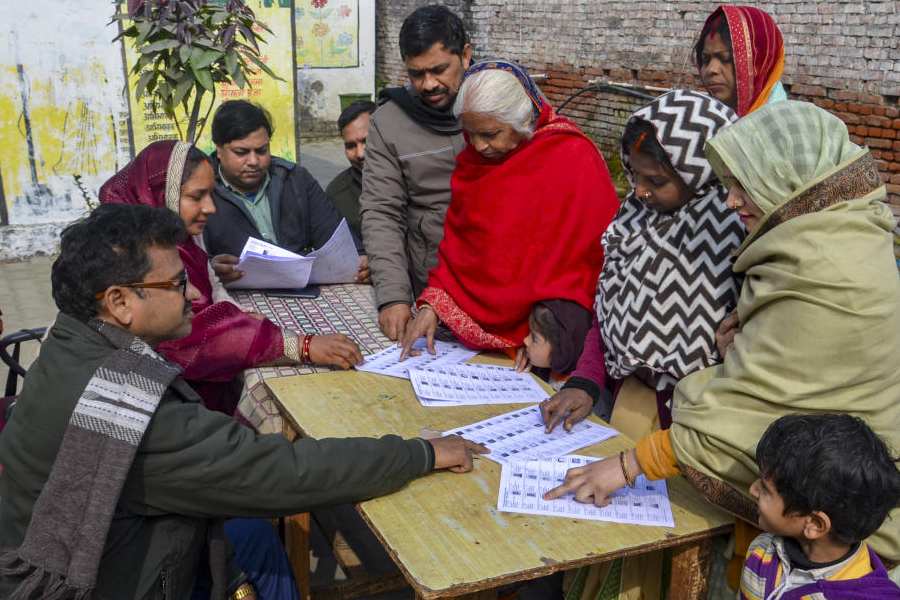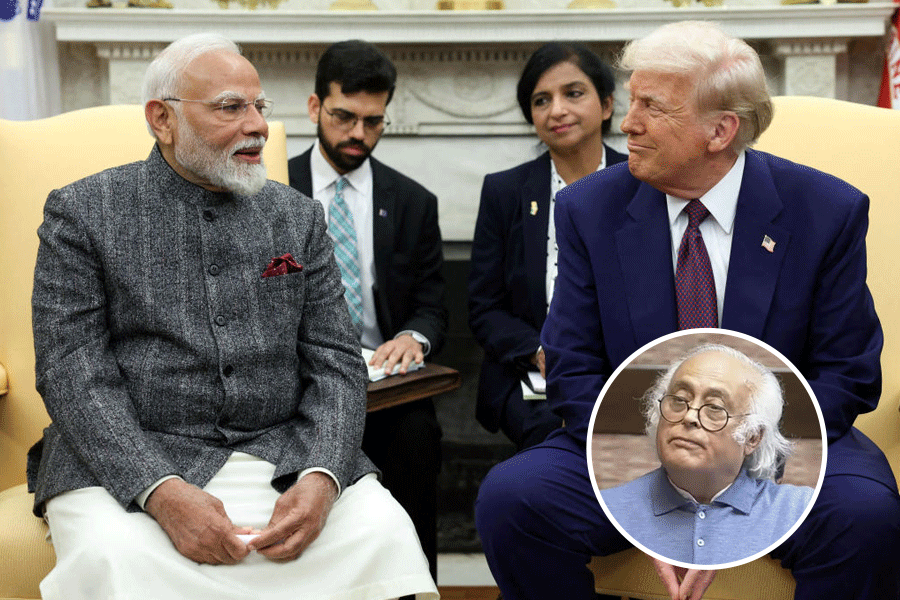 |
| Mohit Chattopadhyay. Picture courtesy Kalabhrit Publishers |
Late in life Mohit Chattopadhyay admitted that when he rose to accept awards, his eyes often filled with tears at not having done what he really wanted to do.
The playwright, who died of throat cancer on April 12, had once rued that he was “too much of a bhadralok to say no” to the ceaseless demands by theatre groups for works that would be easy to understand, recollected theatre critic Samik Bandyopadhyay. “This was sad, for in the process, the rich textured style he once had got diluted and he was unable to explore his full potential.”
Chattopadhyay was a remarkable dramatist who “broke away from contemporary realistic theatre for what was so unfamiliar to Bengali theatre critics of the time that they branded it ‘absurd’. But that was unfair. His early works were more surrealistic and expressionistic. His plays explored all the ramifications of power, how it operated and how all its manifestations were interlinked”, said Bandyopadhyay.
Many of Chattopadhyay’s plays, especially Chandraloke Agnikanda (1966), Rajrakta (1974) and Mr Right (2003), revolved around power and ethics.
Friends of the dramatist, who loved word play and witticism on stage and in real life, remember him fondly. Manoj Mitra, who directed Chattopadhyay’s Gandhorajer Haathtali, reminisced: “We were good friends. In the 1960s and 70s whenever there was a football match or a play to be seen, we went together. Because we talked so much and laughed so loudly, people hated us. With us in the audience, no one else could enjoy anything.”
Chattopadhyay’s family had moved to Calcutta a few months before Independence. Living in a rented house on Brindaban Basak Street, he took admission to Class VIII of Chitpur Bharati Boys School. While his mother wrote poetry secretly and grandfather played sitar in a rooftop room, young Mohit created a study in the stairs leading to the terrace. The book Natoker Nana Rang describes how he filled pages and pages with stories, poems and even a novel.
He began writing poetry seriously at City College, where one of his published short stories earned him encouragement from his teacher, writer Narayan Gangopadhyay. Soon, he started exploring the possibility of writing poetry-like plays. His first play, Kanthanalite Surya, was appreciated but like his next few plays was not staged immediately.
Chattopadhyay’s first play to be staged was Mrityu Sangbad, directed by Shyamal Ghosh. “We wanted to do theatre differently,” said Ghosh, who also produced Chattopadhyay’s Chandraloke Agnikando, Captain Hurrah and Socrates. Ghosh had coined a word to describe the plays that Chattopadhyay liked. “Because the plays defied description, I named them kimitibadi (in Bengali, kim + iti means what is it),” explained Ghosh.
Bibhas Chakraborty, who staged Chattopadhyay’s Rajrakta and Maha Kalir Bachhaa, said: “He had a style distinct from others.” He recalled the way the dramatist gave him a free hand and even rewrote scenes for him.
With the play Lathi, a new phase began in Chattopadhyay’s writing. His language and treatment became simple, his characters people with mundane lives, experiences and problems. In an interview, he had said: “The target of my latter plays is ordinary people. Through some simple truths I want to enter their minds and awaken the strength in them... make them understand how they can be honest, righteous, guiltless, responsible and strong... until human beings are complete the politics they create can never be pure or perfect.”
Chattopadhyay was a recipient of the Sangeet Natak Akademy award and various state awards. He has to his credit nearly 100 plays of varying duration in verse and prose.

